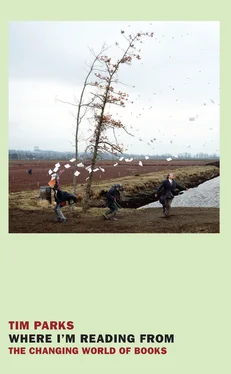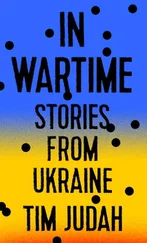“Serious” critics rarely venture into this territory. It is beneath their dignity. I mean academics: the book must be read on its own terms without the distractions of biography. Yet ordinary readers and some reviewers find it hard not to wonder about this tension in the writer’s life and how it might relate to the work. The narrator of Philip Roth’s Deception , himself called Philip Roth, tells his wife: “I write fiction and I’m told it’s autobiography, I write autobiography and I’m told it’s fiction, so since I’m so dim and they’re so smart, let them decide what it is or it isn’t.” For Roth there were few taboos left to break at this point and any partner of his could consider herself well warned. With other writers much may be at stake.
“I could never have written a book like that,” a friend and writer remarked to me of my first novel, “for fear of what my mother would say.” “Parks’s nearest and dearest,” wrote the novelist Patrick Gale, reviewing another book of mine, “must await each of his publications with growing trepidation.” For Gale, part of the experience of reading the novel was wondering about its genesis and consequences. The story on the page hints at a life story beyond.
The question is: Can a novel that will affect the author’s closest relationships be written without any concern for the consequences? Will the story perhaps be “edited” to avoid the worst? Or is awareness of the possible reaction part of the energy feeding the book? Italo Svevo’s La Coscienza di Zeno begins with a hilarious account of Zeno’s attempts to stop smoking, always stymied by his decision to treat himself to l’ultima sigaretta , the last cigarette, usually one of the highest quality. Friends were aware this was largely autobiographical. The novel continues with Zeno’s courting of three sisters; eventually rejected by the two prettiest, he marries the plain one. Again his wife would have been aware of elements from his own life. And now we have the story of a love affair, its various stages recounted in the most meticulous and again hilarious, all-too-convincing psychological detail. Finally, we proceed to chapters on Zeno’s business life, which much resembles Svevo’s own running of a paint company. Nevertheless the author’s wife always stated with great serenity that she was sure her husband had never betrayed her, nor was she shaken in this belief by the fact that his last words, when pulled out of a car accident were, reputedly, “Give me l’ultima sigaretta .”
So, was the introduction of the affair into the novel a kind of trial for her? She had to believe it was just made up. Or was there an agreement between them, explicit or otherwise, that whatever they knew would be kept to themselves, any truth in the matter forever denied? Did Svevo have to introduce the mistress because the shape of the novel required it? If so, wouldn’t there be a certain anxiety that his wife wouldn’t see it that way, and wouldn’t that affect the way he wrote these chapters?
What I am suggesting is that in the genesis of a novel, or any work of literature, there will often be private tensions playing a part in the creative decisions made. If a reader becomes aware of these tensions, that awareness will inevitably alter the way the book is read. Some years ago, reading Joseph Frank’s mammoth biography of Dostoevsky, comparing dates and details in footnotes, I realized to my astonishment that when the author was writing Notes from Underground , in which at one point the utterly disgraceful narrator scares the living daylights out of a young prostitute by foreseeing how she will die of tuberculosis in the brothel, Dostoevsky’s own wife was dying of tuberculosis in the next room. While he imagined his character telling the girl she would still be submitting to her clients’ clumsy caresses while coughing blood, he could hear his wife coughing blood on the other side of the wall. This biographical “story”—the circumstances in which Dostoevsky wrote the work—altered and intensified the novel’s story for me, if only because the wife’s illness and Dostoevsky’s very difficult relationship with her (he had recently returned from a gambling spree and an affair with a younger woman) very likely had to do with the frighteningly negative energy coming off the page.
Might we then suppose that in creating a novel, an author is using many levels of address, ranging from utterances directed to those closest to the author, perhaps even in a sense exclusively to him or herself, and utterances addressed to everyone? So that certain aspects of a novel are, in fact, or are also , conversations overheard, and as such perhaps more intriguing than comprehensible? Is this what creates an element of enigma in many writers’ narratives, a surplus of emotion that seems to go beyond the apparent content?
In any case, who is this “everyone” the author is addressing? Certainly not readers in the past, who are dead and cannot read his work. Perhaps not those in distant lands and cultures, or in a distant future, whose opinions and attitudes the author doesn’t know and cannot easily relate to. “Everyone” in fact means the people the author assumes will be reading the book. “I’ve just done the last proofs of Lady C [ Lady Chatterley’s Lover ],” D.H. Lawrence wrote in 1928. “I hope it’ll make ’em howl—and let ‘em do their paltry damnedest, after.” In this case “them” was more or less everybody in the British establishment. They were the people Lawrence was addressing, not us, not the German or Italian publics, not a twenty-first-century student in Seoul writing a doctoral thesis on Lawrence. (An extraordinary number of doctoral theses on Lawrence have come out of South Korea.) Thus, we are overhearing Lawrence’s argument with his English contemporaries, hence a little knowledge about them and him will give the experience of reading the novel more sense and depth.
Our “serious critics” have no problem with this; they acknowledge that context will be helpful in reading a book that comes from the past, or from another country. But isn’t this absolutely analogous to taking an interest in the extent to which a book affects the author’s more intimate relationships? Surely this was of more importance than his or her attitude toward the general public. After all, Lawrence frequently and blatantly put people he knew in his novels and seemed to relish the fallout. Joyce did the same.
Eugenio Montale, a poet who remained married while pursuing long affairs with other women, regretted the passing some five hundred years ago of the sonnet sequence convention which, as he saw it, had created a form that everybody could contribute to without the question of biography arising; indeed, what most attracts him to the stilnovisti of the thirteenth century—the Tuscan poets who preceded Dante—is the way their poems appear as a collective effort, such that any discussion of individual biographical events becomes meaningless. Clearly what Montale sought was the freedom, in his many poems addressed to women, either to invent or not to invent without having others pursue the matter. At the same time, the implication is that much artistic convention depends on a desire to find public expression for what must remain hidden in private, such that a married person writing of a lover can claim to do so, or maybe indeed truly do so, because such writing constitutes a beautiful convention to which he or she wishes to contribute, not because he or she has a lover and not because he or she likes to imagine having a lover without actually having one, something some spouses might in fact find more distasteful.
It would seem that fiction writing is trying to satisfy two needs that are at loggerheads: to tell and not to tell. The anthropologist Gregory Bateson, who wrote a great deal about how art is often a therapeutic corrective mechanism in society, suggested that any long-term intimate relationship depended on mutual respect of both partners for a taboo; it was precisely the agreed silence about core facts that allowed a relationship to become, as it were, chronic or, looking at it more positively, stable. If that is the case, the fascinating question about works of literature that risk arousing the hostility of the author’s loved ones is: Does the energy and urgency of the story actually depend on the author’s breaking or perhaps not quite breaking a taboo? Or rather, is the author finding in fiction a way to smuggle a message through the taboo, while leaving it officially intact? Ultimately one might see a great deal of literature as the happy byproduct of a disturbing communication problem.
Читать дальше












